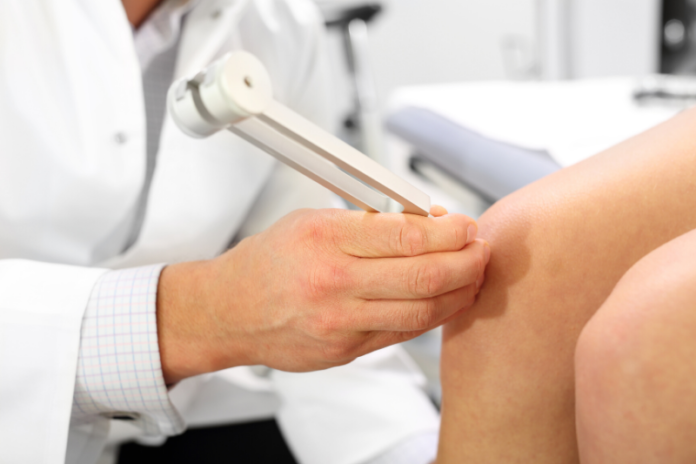An orthopedic surgeon treats afflictions of the musculoskeletal system through surgery.
Some orthopedic surgeons may specialize in treating the shoulders and arms, while others may be specialists in knee and hip replacement surgery.
If you’re experiencing back or knee pain or have an injury that isn’t healing, you may consult an orthopedic doctor. However, if your condition requires surgery, you must see an orthopedic surgeon.
You may need to consult an orthopedic surgeon for the following:
To Seek Treatment For Musculoskeletal Conditions
An orthopedic surgeon consults and treats individuals with various conditions that trigger the nerves, joints, muscles, connective tissues, and bones.
Musculoskeletal conditions like osteoporosis, bursitis, and arthritis can result in dysfunction and pain that can be debilitating.
Most orthopedic medical conditions are chronic, which implies that they last for months or even years. Also, those conditions are progressive and will worsen over time if left untreated. Some conditions occur with age, some due to excessive use of an affected area, and some due to genetics.
Conditions such as arthritis can happen in several body parts. Such a condition comprises joint inflammation that results in pain and mobility issues.
The five most significant musculoskeletal conditions that need the visit of an orthopedic surgeon are:
- Bursitis
- Tumors
- Arthritis
- Osteoporosis
- Pain (muscle, joint, knee, and hip pain)
Luckily, most chronic musculoskeletal conditions can be healed with effective treatment plans. However, the treatment you need will depend on aspects like age, lifestyle, overall health, the extent to which it’s hampering your daily activities, and the severity of the conditions.
The possible treatment recommendations from the surgeon can include medication, physical therapy, in-office treatment procedures, surgery, the RICE method, or a blend of these options.
To Treat & Prevent Injuries
Some typical reasons why individuals visit orthopedic doctors include ruptures or tendon tears, muscle injuries, dislocations, stress fractures, compression fractures, and broken bones.
Athletes may frequently collaborate with orthopedists to optimize their performance by preventing or lowering the chances of future injuries. For instance, joint dislocation is a common risk for athletes.
Once they experience a dislocation, the chances of it happening again will be much higher. So, to prevent such future dislocations, they will need to undergo therapy from an orthopedist.
Orthopedic surgeons can treat injuries to tendons, muscles, and broken bones to eliminate or lower pain and enhance its function.
They often collaborate with other medical experts like pain management specialists, rehabilitation doctors, and therapists to ensure the best treatment outcome. It results in your enhanced quality of life and optimized mobility and function.
Orthopedic surgeons can opt for non-surgical treatments, physical therapy, and at times surgery to treat the following injuries:
- Tendon injuries like ACL rupture or Achilles tendon rupture
- Ankle sprain
- Labral tear of the hip or the shoulder
- Tennis elbow
- Stress fracture
- Normal fractures like a broken wrist, compression fracture, kneecap, and a broken hip
- Meniscus tear
- Plantar fasciitis
- Rotator cuff tear
- Carpal tunnel syndrome
Regardless of your injury, you can always rely on an orthopedic surgeon for help.
To Perform Non-Surgical & Surgical Treatment Procedures
Orthopedic surgeons can efficiently perform both non-surgical and surgical treatments for any injury or orthopedic condition. The surgeon can help you with the following surgical and non-surgical procedures:
| Surgical Procedures | Non-Surgical Procedures |
| Joint revision surgery | Joint manipulation |
| Spinal surgery | Viscosupplementation (arthritis treatment) |
| Soft tissue repair | Lumbar sympathetic block |
| Osteotomy | Aspiration (fluid drainage) |
| Excision (Removal of soft tissue and bone tumors) | Casting or bracing |
| Joint replacement surgery | ESWT or extracorporeal shock wave therapy |
| Arthroscopy | Injections like: Facet joint injectionLumbar epidural steroid injectionCervical epidural injectionSteroid injections in the bursa |
| Spinal infusion & Disc replacement surgery | |
| Bone fracture repair | |
| Debridement (removal of damaged bone or tissue) |
Final Thoughts
So, when experiencing an orthopedic condition or injury that is causing pain or affecting your mobility, you must consult a reputed orthopedic surgeon for a thorough checkup and treatment advice. The orthopedic team at Max Healthcare Group has some of India’s leading orthopedic surgeons with a high success rate. They offer personalized care and attention to each patient, making it the best place to consult for orthopedic problems.
Read More Blogs:











